The digital marketing world is evolving faster than ever, and one of the biggest drivers of this change is artificial intelligence. Brands, creators, and businesses are no longer asking whether AI will impact content—they are asking how deeply it will transform strategies. The future of AI in content creation promises to be innovative, efficient, and incredibly personalized, opening doors that were unimaginable just a few years ago.
From automated blog writing to AI-powered video production and personalized ad campaigns, AI is reshaping how businesses engage with audiences. In 2025 and beyond, the role of AI will not just be supportive; it will be central to creating, optimizing, and scaling content strategies.
Why AI Matters in Content Creation
The future of AI in content creation lies in its ability to process vast amounts of data and generate content that resonates with specific audiences. Unlike manual methods, AI tools can analyze user behavior, identify patterns, and predict what type of content will perform best. This ability saves time, cuts costs, and delivers higher-quality outputs.
Marketers are already using AI to write product descriptions, optimize SEO, and even produce interactive videos. As technology matures, these capabilities will expand to areas such as storytelling, brand voice replication, and real-time customer engagement.
Key Trends Shaping the Future of AI in Content Creation
Several trends are defining how AI will revolutionize the industry:
1. Hyper-Personalized Content
AI algorithms are becoming more sophisticated in understanding customer preferences. Soon, businesses will be able to create individualized content experiences for every consumer. For example, an AI-powered newsletter might display different stories depending on the reader’s past behavior.
2. AI-Generated Visuals and Videos
The future of AI in content creation goes beyond text. With advancements in generative AI, marketers can produce realistic videos, animations, and graphics without expensive production teams. This will democratize visual storytelling and give small businesses the same tools as global enterprises.
3. Voice and Conversational Content
With the rise of smart assistants and voice search, AI will be key in generating conversational content. Natural language processing ensures that chatbots and voice assistants can deliver human-like, engaging responses.
4. Predictive Analytics for Content Strategy
AI will not only create content but also predict what types of content will drive engagement. Brands will use predictive analytics to determine the best time, format, and platform for publishing.
5. Ethical and Authenticity Challenges
The future of AI in content creation also raises important questions about originality, plagiarism, and authenticity. As AI-generated content becomes indistinguishable from human writing, businesses will need to balance automation with ethical responsibility.
Benefits of AI in Content Creation
Embracing AI brings numerous advantages for brands and creators:
- Efficiency: AI can create large volumes of content quickly.
- Cost Savings: Businesses reduce the need for large production teams.
- Scalability: Campaigns can be scaled across multiple platforms simultaneously.
- Improved SEO: AI tools optimize keywords, readability, and structure automatically.
- Better Engagement: Hyper-personalized content leads to stronger customer relationships.
These benefits highlight why investing in AI is no longer optional—it’s essential.
Challenges Ahead
While the future of AI in content creation is promising, it comes with challenges:
- Loss of Human Creativity: Machines can mimic style but may lack true emotional depth.
- Over-Reliance on Automation: Brands risk losing authenticity if AI is not balanced with human oversight.
- Data Privacy Concerns: Personalized content requires user data, which must be handled responsibly.
- Quality Control: AI-generated content sometimes contains inaccuracies or bias.
Overcoming these challenges will be crucial for sustainable growth.
Real World Examples of AI in Content Creation
Several industries are already showing how AI is shaping the future:
- Media Outlets: Publishers use AI to generate quick news summaries and financial reports.
- E-commerce: AI writes product descriptions, reviews, and personalized recommendations.
- Marketing Agencies: Automated ad copy creation and A/B testing help improve conversion rates.
- Education: AI develops interactive learning modules tailored to student needs.
These examples prove that the future of AI in content creation is not just theoretical—it’s happening now.
The Role of Human Creativity
Despite rapid advancements, AI will not completely replace human creativity. Instead, the future of AI in content creation is about collaboration. Machines handle repetitive tasks, data analysis, and scalability, while humans bring storytelling, emotional depth, and originality.
Marketers who blend AI efficiency with human creativity will achieve the most impactful results. For example, a content writer may use AI to draft ideas, but refine the tone, emotional appeal, and storytelling to resonate with audiences.
The Future: What to Expect in 2025 and Beyond
Looking forward, the future of AI in content creation will likely include:
- AI-Powered Brand Voices: Tools that perfectly mimic a company’s tone and messaging style.
- Interactive Content at Scale: AI will create immersive experiences like VR storytelling and gamified marketing.
- Global Reach: Real-time language translation will allow brands to publish content for global audiences instantly.
- AI as a Creative Partner: Instead of being a tool, AI will act as a co-creator, brainstorming and adapting ideas alongside marketers.
In short, AI will become a powerful ally in shaping meaningful customer interactions.
Conclusion
The future of AI in content creation is filled with opportunities, challenges, and endless possibilities. Businesses that embrace AI will enjoy faster production, deeper personalization, and stronger customer engagement. However, success will depend on finding the right balance between automation and human creativity.
As we move further into 2025, one thing is certain: AI will not just be a tool for content—it will be a strategic partner in shaping the future of digital storytelling. Brands that understand this shift and adapt early will stay ahead in an increasingly competitive landscape.


